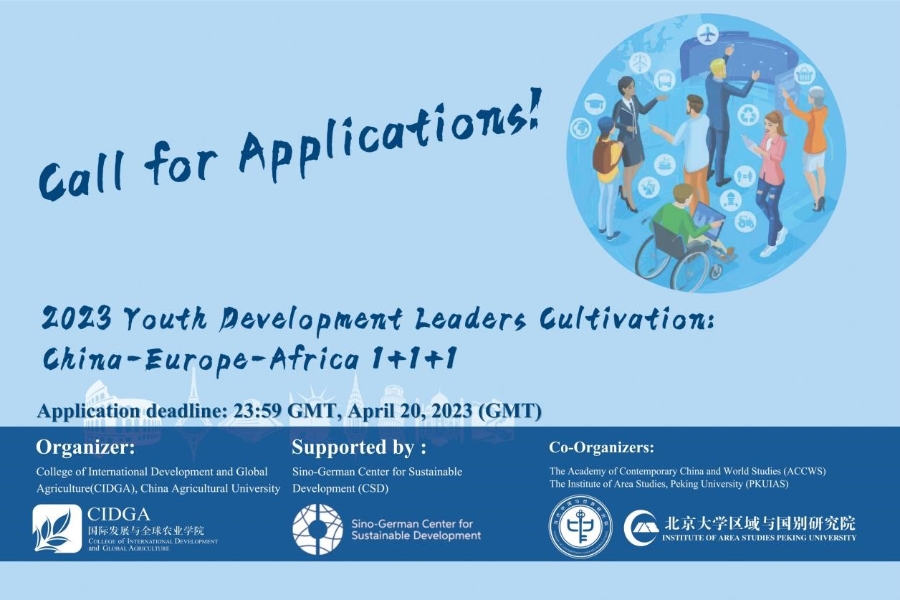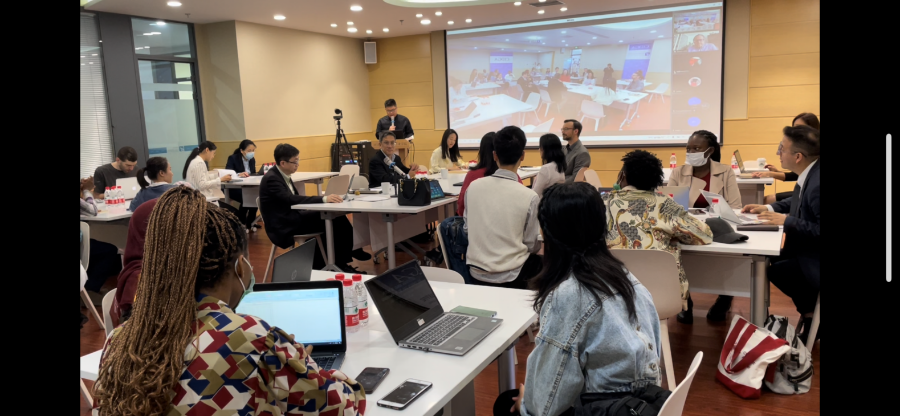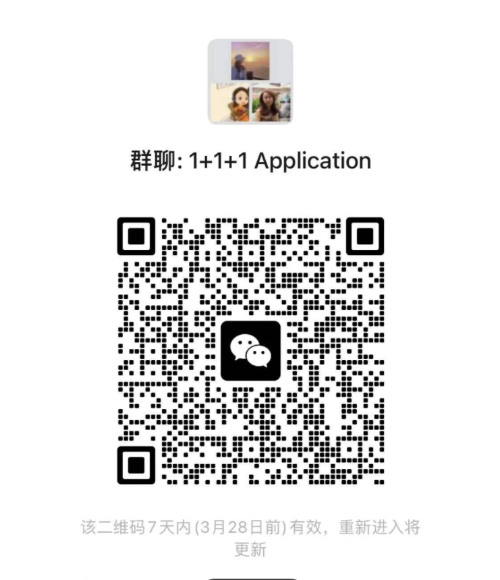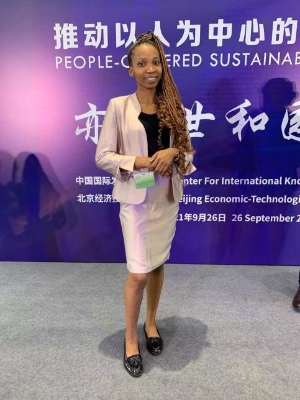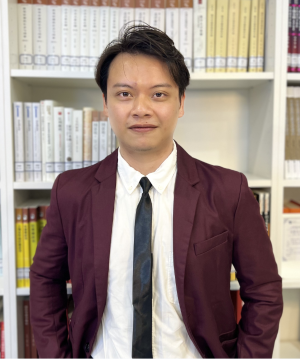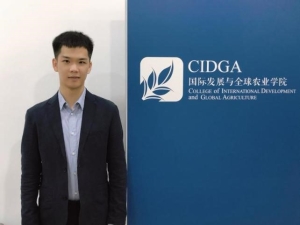Supported by:
Sino-German Center for Sustainable Development (CSD)
Organizer:
College of International Development and Global Agriculture (CIDGA), China Agricultural University
The Academy of Contemporary China and World Studies (ACCWS)
The Institute of Area Studies, Peking University (PKUIAS)
The international development community recognizes the significant impact that youth engagement and contribution can have in achieving sustainable and inclusive development. The "Youth Development Leaders Cultivation: China-Europe-Africa 1+1+1 project" is dedicated to empowering tomorrow's leaders in the field of international development by providing mentors, resources, programs, and events that encourage young leaders to engage and contribute to sustainable development. The project features a "1+1+1" Transnational Youth Study Group where a Chinese youth, an African youth, and a youth from Europe or beyond will form study groups to exchange experiences and learn about international development and global public goods (GPGs). We strongly encourage candidates interested in the modalities and challenges of development cooperation on GPGs, particularly in areas such as poverty reduction, agricultural and food security, women's empowerment, and climate-smart solutions, to apply.
Each team will select a relevant case topic in the realm of international development or Global Public Goods. Throughout the program, you will have the opportunity to demonstrate your academic and policy knowledge by analyzing a case study in one of the following areas: sustainable agriculture, poverty reduction, women's empowerment, food security, or green development. Please ensure that the topic is manageable, allowing for the in-depth exploration of the issue from various aspects.
Why join?
By joining the programme, you will:
1) Be a part of a vibrant network of young and innovative youth leaders passionate about building a better world. In addition to improving your academic capacity, participants will have extensive opportunities to develop their leadership potential through participation in the program with other young leaders from China, Europe, and Africa;
2) Increase your skills in problem-solving, decision-making, communication and leadership; strengthen your presentation abilities; improve your analytical and writing skills and your soft skills;
3) Build a richer, more nuanced understanding of knowledge on Sustainable Development Goals (SDGs), international development cooperation and GPGs and deepen your knowledge of case study methods;
4) Work with recognized scholars in the field of development studies and receive detailed feedback from them (all fellows will be mentored by development scholars/practitioners from China/Europe/Africa. In addition, mentors will meet regularly with fellows to discuss research plans, policy interests, and progress towards fellows’ goals).
5) Join a virtual tour in Morogoro Province, Tanzania and discover the "Small Beans, Big Nutrition" project, gaining valuable insights into agricultural cooperation between China and Africa.
6) Apart from receiving a completion certificate, excellent participants will also have the opportunity to publish their work on CIDGA, CSD’s websites, Chinese and international media outlets, or academic journals.
Eligibility Criteria
1. To integrate their research and interests with previous studies, applicants must show a keen interest in sustainable development/GPGs, strong academic background, leadership skills, and cultural sensitivity. In addition, the applicant must have excellent writing skills in English (a basic understanding of Chinese is a plus) and the ability to overcome obstacles working in a cross-national group.
2. Applications are open to postgraduate students, PhD candidates, and young professionals. Participants should obtain approval from their supervisors or local contact before applying.
3. Applicants must be able to fully commit within the program period. .June to October 2023. (June - October 2023).
4. Evaluation and selection of applicants will follow the principles of gender equality.
How to apply
Application deadline: 23:59 GMT, April 20, 2023 (GMT)
To apply, please submit your resume and your application form (see attachment) to Ms. Gao: gaoyataniya@outlook.com
Candidates may be invited for an interview to be held by video or phone. Successful applicants will be notified of the outcome of their applications by early May 2023. For questions, please contact: hangwei@cau.edu.cn
Draft Agenda
(The project will be implemented from June to October 2023. The final arrangements are subject to notification by the organizers.)
End of May | The Project Committee shortlists and announces up to 8 teams of candidates, according to results provided by the evaluation panel. |
June | The opening ceremony convenes all participant youths, scholars, and representatives from organizers or supporting media.
In the 1st workshop, the youth leaders must present the research/writing proposals in groups or individuals. The leading development scholars and practitioners will give feedback for all presentations. |
July-August | 1. Each study group conducts exchanges and research under the guidance of an appointed scholar or development practitioner. 2. Participants are encouraged to prepare videos for up to 3 minutes to present your research results. 3. All groups are encouraged to conduct your research from a comparative perspective.
Note: The participants can reimburse transportation and print fees (up to ~ 4000 RMB for each group) generated from the research. (The invoices should be submitted as proof of payment when applying for reimbursement). |
September-
October | In the 2nd workshop, the youth leaders will present their writing output (media articles, Op-Eds, policy-oriented reports or journal articles). |
1. Submit your research report by email to gaoyataniya@outlook.com by the end of September 2023, no less than 3000 words. 2. A panel of judges will evaluate all submitted research reports and rank the top 3 teams. 3. A certificate award ceremony will be held at the closing ceremony. Participants who have successfully completed the project will be granted certificates jointly issued by organizers. |
A quick link to the advance application: Scan the QR code on the left to join the WeChat group for the “1+1+1” project application; if you fail to join the group, scan the QR code on the right for help.
About CSD:
In 2016, China and Germany agreed to establish a Sino-German Center for Sustainable Development (CSD), which was officially opened in Beijing in May 2017 by the then Minister Gerd Müller and Chinese Commerce Minister Zhong Shan. Its purpose is to foster dialogue on development policy, especially with a view to implementing the 2030 Agenda; to help improve mutual understanding; and to develop answers to fundamental questions in the field of development policy. Another task of the Center is to prepare development projects in and with third countries and to support their implementation through trilateral, regional or global cooperation. The CSD is also active in the field of cooperation with the private sector. It thus provides a platform for the development of common standards for sustainable economic activities.
About CIDGA:
Established in 2017, College of International Development and Global Agriculture (CIDGA), is a comprehensive platform of China Agricultural University that brings together multidisciplinary fields around international development and global agriculture based on decades of the university’s explorations on both bring-in and going-out development researches and talents fostering. CIDGA aims for policy and theoretical innovations in international development and nurtures new development knowledge, a central goal supported by two lines of research, both area studies and global governance studies. Focusing on core areas - agriculture, poverty reduction and green development, the College is mainly engaged in four-pillar activities: high-end think tank research, academic and policy dialogue, talent cultivation, and overseas development demonstration.
About ACCWS:
The Academy of Contemporary China and World Studies (ACCWS) is an affiliate of the China International Communications Group (CICG). It is a state-level think tank committed to international exchanges and cooperation, specializing in international communication as a national research institute designated by the Ministry of Science and Technology. Evolving from the Research Center for International Communication of CICG, ACCWS was officially inaugurated in 2017. At present, the institute has more than 100 in-house researchers and dozens of guest researchers from home and abroad.
About PKUIAS:
The Institute of Area Studies, Peking University (PKUIAS) is a comprehensive academic platform for area studies that has as its main tasks the cultivation of talent, the conducting of academic research, serving as a think tank, and the hosting of international academic exchanges. Relying on the research bases at PKU, PKUIAS mobilizes the university’s diversified academic strengths and long-existing networks at home and abroad. It integrates and revitalizes relevant academic teams and resources that are scattered in different faculties, and inspires the enthusiasm and initiative of their teachers and students, to construct a more rational, comprehensive, multi-leveled and coordinated interdisciplinary subject composition within the university.
Words from former participants:
Agbo Patience Ndidiamaka (Nationality: Nigeria)
1+1+1 is a transnational Youth Study Project designed to foster mutual learning and networking as a means of cooperation and diversification towards sustainable agriculture in different countries. The study group was formed by having three people from various nations across the globe. My team and I, representing our countries in other areas of the world , had an insightful discussion and found out that poverty is the common challenge facing some parts of developing countries like Africa and has hindered development; we shared efficacious ideas on poverty alleviation, and through our research, we found potentially assessable development experiences in China which could be a stepping stone for other developing countries. Our findings were penned as a report and video documentation, "China's stories: Implication for Agricultural Development in Tanzania and Nigeria." My team and I were awarded for producing a special research report and video documentary and for exhibiting great teamwork while conducting the research project. I had the best experience being part of the study group; I was inspired by learning and sharing ideas of international development cooperation and progressive poverty alleviation strategies that help to achieve economic stability.
Student name: Carlo John B. Arceo (Nationality: Philippine)
The 1+1+1 Program of the College of International Development and Global Agriculture is an innovative knowledge-sharing platform. In 2021, I joined the program,and this platform provided young scholars with a deeper understanding of China’s poverty eradication experience and rural development strategies. Not only were we informed by the vast knowledge that this exchange can offer, but it also provided us with an avenue to be creative on how to showcase the insights and learnings during the duration of the program.
Student name: Tianlu Zheng (Nationality: China)
In 2021, I had the privilege of participating in the “1+1+1 program” with two students from African countries. Our group explored a case study of poverty reduction in China. The process of learning and discussing with each other during the project deepened my understanding of China's experience in poverty reduction and China’s role in international development.
